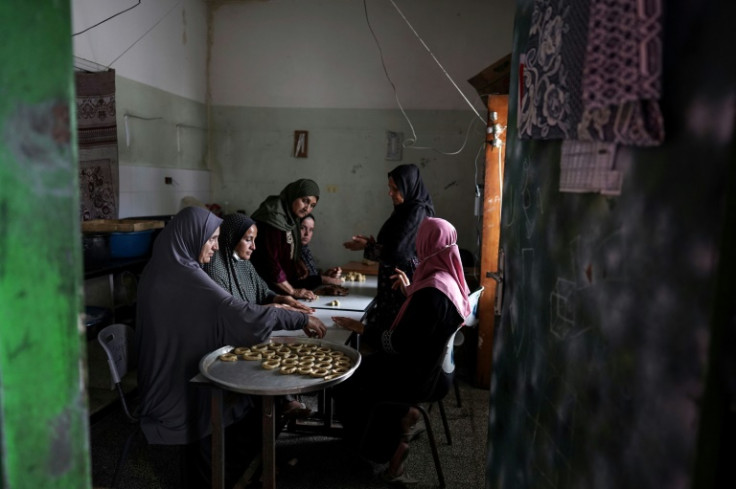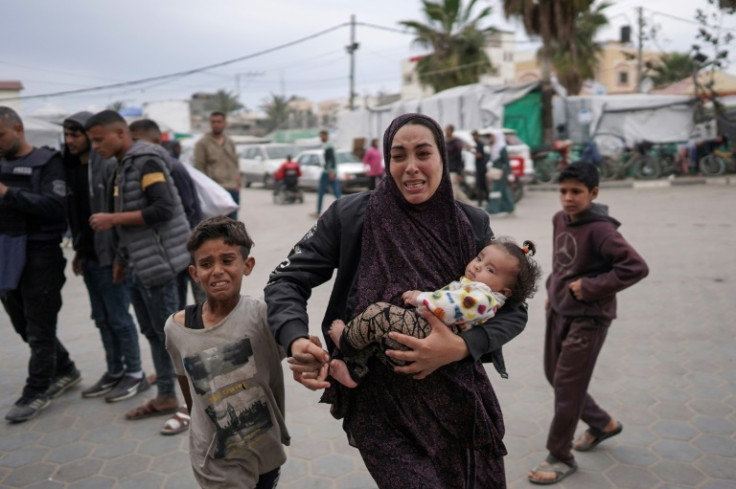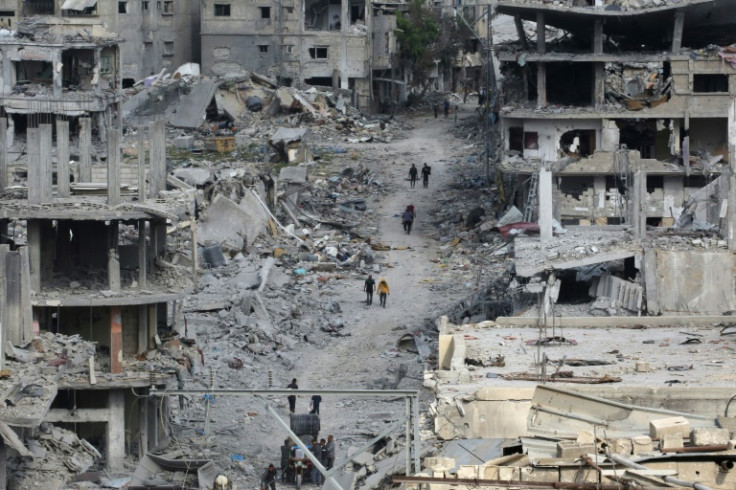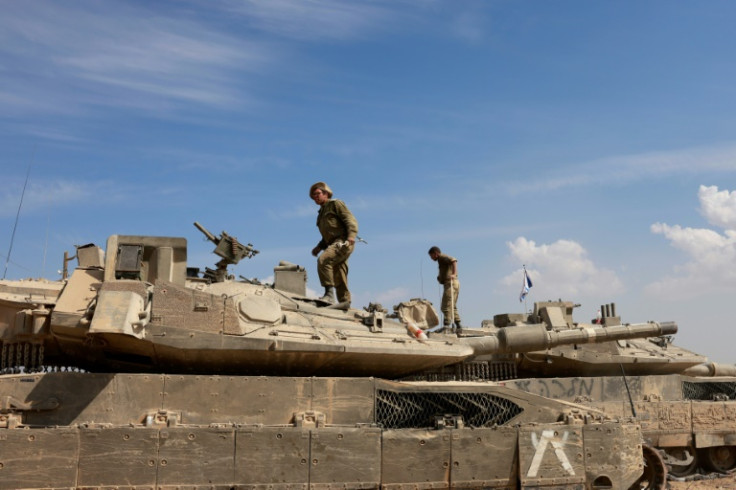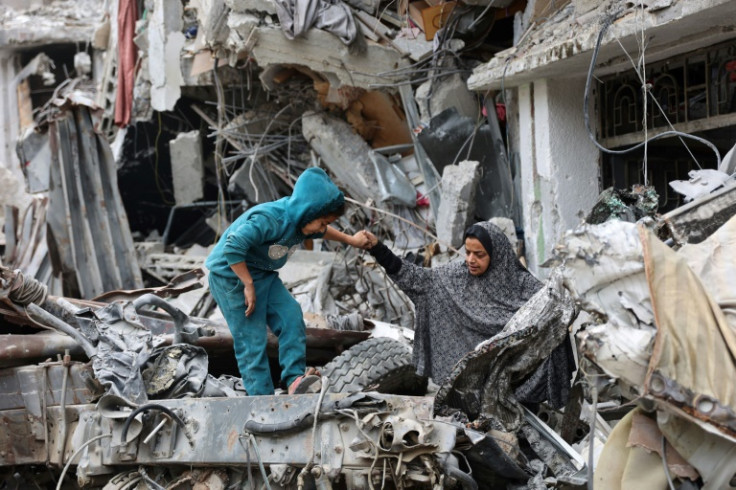
Hamas said Tuesday it was considering a new framework for a truce proposed during the latest round of negotiations in Cairo, as Palestinians returning to southern Gaza confronted the extent of destruction left after Israeli troops' withdrawal.
Six months into the bloodiest Gaza war, Qatari, Egyptian and American mediators have proposed another temporary ceasefire, according to a Hamas source.
The three-part proposal would halt fighting for six weeks to facilitate an exchange of hostages held by Hamas for Palestinian prisoners in Israel.
Saying it "appreciates" the mediators' efforts, Hamas on Tuesday accused Israel of not responding to any of its demands during the talks.
"Despite this, the movement's leadership is studying the submitted proposal," the militant group said in a statement.
After months of fierce fighting, Israel announced over the weekend it had pulled its forces from the southern city of Khan Yunis to allow troops to recuperate in preparation for the next phase of the war, including an incursion into Rafah.
Israeli Prime Minister Benjamin Netanyahu said Monday a date has now been set for sending ground forces into the strip's southernmost city, which hosts most of the displaced Palestinian population.
Foreign powers and humanitarian groups have persistently urged Israel not to carry out an operation there for fear of inflicting mass civilian casualties.
But Netanyahu and his military commanders have insisted victory over Hamas cannot be achieved otherwise.
"It will happen -- there is a date," Netanyahu said in a video that did not specify the timing.
In response, Israel's main backer the United States repeated its objections to a Rafah operation, saying it would "ultimately hurt Israel's security", while Israel's defence minister Yoav Gallant called it "the right time for a truce", even as strikes continued to pummel Gaza.
As Palestinians prepared for Wednesday's Eid al-Fitr holiday marking the end of the Ramadan fast, those returning to Khan Yunis just north of Rafah confronted mounds of rubble where houses and shops once stood.
"I came to see my home, only to find it destroyed and reduced to a pile of rubble," said Uum Ahmad al-Fagawi after coming back to the Gazan city. "I'm shocked by what I saw. Every home is destroyed, not only mine but also all the neighbours' homes."
Another returnee said she had come back to find "a ruined place".
"No water, no electricity, no columns, no walls, and no doors, there's nothing. Gaza is not Gaza anymore," she said.
The troops' withdrawal comes as Israel faces tremendous international pressure to pause its war and allow more humanitarian aid into the starving territory.
Since the October 7 attacks that launched the war, Gazans have been deprived of food, water and other basic supplies under a blockade.
The dire shortages have been only minimally eased by aid deliveries, with humanitarian groups warning the trickle of supplies will not avert an imminent "man-made" famine.
On Monday, 419 aid trucks were permitted into the territory, the most in a single day since the start of the war, according to COGAT, the Israeli body that manages the flow of aid into the strip.
The war began with Hamas's October 7 attack against Israel, resulting in the deaths of 1,170 people, mostly civilians, Israeli figures show.
Palestinian militants also took more than 250 Israeli and foreign hostages, 129 of whom remain in Gaza, including 34 the army says are dead.
Vowing to destroy Hamas, Israel launched a retaliatory offensive that has killed at least 33,207 people in Gaza, mostly women and children, according to Hamas-run Gaza's health ministry.
The latest proposal to pause the fighting would see a six-week truce and Israeli women and child hostages freed in exchange for up to 900 Palestinian prisoners, a source in Hamas said Monday.
The deal would also allow the return of displaced Palestinian civilians to the north of the Gaza Strip and 400 to 500 trucks of food aid a day, according to the source.
During previous rounds of mediation, which ended in deadlock, Hamas demanded a comprehensive ceasefire, full Israeli withdrawal from the strip and control over aid deliveries.
In sharpening rhetoric that exposed a possible waning patience with Netanyahu, US President Joe Biden last week demanded the Israeli leader do more to protect Gaza's civilians and reach a ceasefire.
With the proposed deal now with Gaza's rulers, US National Security Council spokesman John Kirby said that "it's going to be up to Hamas to come through".
Qatari foreign ministry spokesman Majed al-Ansari told the BBC he was "more optimistic today than I was a couple of days ago" but added: "We are by no means at the last stretch of the talks."
